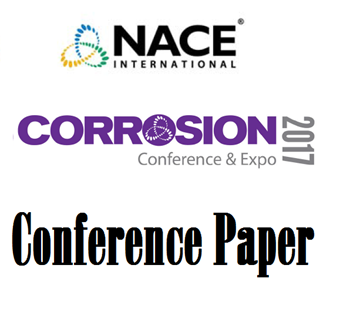Search
02413 SECOND GENERATION, HALOGEN RESISTANT COPPER CORROSION INHIBITORS
Also Purchased
99101 A NEW ENVIRONMENTALLY-PREFERRED COPPER CORROSION INHIBITOR
Product Number:
51300-99101-SG
ISBN:
99101 1999 CP
$20.00
51317--9719-New Yellow Metal Corrosion Inhibitors Targeting Surface Chemistry of Industrial Systems
Product Number:
51317--9719-SG
ISBN:
9719 2017 CP
Publication Date:
2017
$20.00
99300 HALOGEN COMPATIBLE TREATMENT PROGRAMS FOR OPEN RECIRCULATING COOLING WATER SYSTEMS
Product Number:
51300-99300-SG
ISBN:
99300 1999 CP
$20.00




